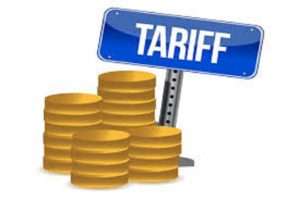

Earlier this week, the Trump administration filed a petition for certiorari urging the Supreme Court to review the Federal Circuit decision in the case challenging the president’s massive “Liberation Day” tariffs, brought by the Liberty Justice Center and myself on behalf of five small businesses harmed by the tariffs (we were later joined by leading constitutional law scholars and Supreme Court litigators Neal Katyal and Michael McConnell). The government also submitted a motion for expedited review.
Today, we submitted a response to the petition, in which we agree the Supreme Court should hear the case and resolve it quickly, so as to put an end to the harm caused by the illegal tariffs as quickly as possible. We previously prevailed in the Court of International Trade, and on appeal in the Federal Circuit, and I hope the Supreme Court – should it take the case – will rule the same way.
Our case is consolidated with one filed by twelve state governments, led by the state of Oregon. Both challenge massive tariffs Trump has imposed under his supposed authority under the International Emergency Economic Powers Act of 1977 (IEEPA).
By now, this litigation has generated thousands of pages of briefs and other filings, and 176 pages of judicial opinions (if I have the count right). But underneath all the legalese, the central issue at stake is actually a simple one: Does our constitutional system give one man – the president – the power to impose any tariffs he wants, in any amount, on any nation, at any time, for any reason? If the answer is “no,” then the IEEPA tariffs are illegal.
And the answer should indeed be “no,” because the Framers of the Constitution carefully avoided giving the executive the kind of unbridled tax authority claimed by power-grabbing English monarchs, like Charles I. The president cannot wield monarchical power, and letting him do so is an affront to the rule of law.
We have presented an assortment of more detailed reasons why “no” is the right answer to the central question raised by this case: the fact that IEEPA doesn’t even mention tariffs and has never previously been used to impose them, that there is no “unusual and extraordinary threat” of the kind required to invoke IEEPA, the major questions doctrine, the constitutional nondelegation doctrine, and more. These points are covered in much greater detail in our various legal filings (see the Liberty Justice Center site for a compilation), and in some of my earlier writings about the litigation.
If the Supreme Court takes the case, there may well be many additional briefs, and other filings. Such materials are important. But it is also essential to remember the deeper principle underlying all the details: the president is not a king, and our Constitution does not grant him monarchical power.

















